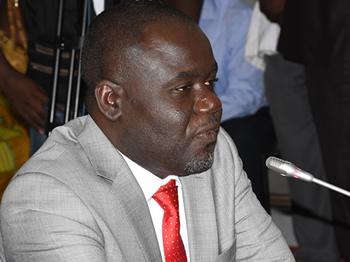
Though interest were shown by many airlines, Ethiopian, Air Mauritius, Colt Aviation and South African Airways, according to B&FT sources, made presentations Monday as regard their proposed structure, shareholding, fleet capacity, and routes among others for the new flag carrier.
The desire to establish a new home-based carrier after the collapse of Ghana Airways—a fully state-owned entity—and the subsequent collapse of Ghana International Airlines, established with private sector participation after the collapse of Ghana Airways, stems from growth in the sector experienced on the continent and the industry’s future potential.
ATA predicts air-travel growth in Africa will outpace all other regions of the world over the next 20 years, albeit from a much smaller base. Positively, IATA expects 8.0% growth in demand; slightly outpacing capacity expansion of 7.5%.
Aviation in Africa currently supports $72.5billion in economic activity and 6.8 million jobs, according to the Africa Outlook report for 2018, but Africa’s proportion of the global tourism industry is receding – as the continent’s share shrunk from 4.8% of global arrivals and receipts in 2006 to 3.3% in 2016.
Africa’s potential however remains huge, given the increased investment in on-ground infrastructure and substantial growth of the middle-class on the continent.
Huge investments in on-ground infrastructure, such as expansion of the Arrival Hall of Terminal 2 and construction of Terminal 3 at the Kotoka International Airport (KIA), construction of a new terminal building at the Kumasi Airport, expansion of the Tamale Airport, reconstruction of the Wa airport and construction of a new airport in the Volta regional capital Ho, all require that a home-based carrier, which will focus on operating domestic and regional routes before taking on the rest of the world is established.
The sector Minister, Joseph Kofi Adda, at the meeting with interested parties on Monday, October 29, 2018 said government will not take up more than 10 percent in the yet-to-be established new national air carrier, emphasizing that the government is careful not to repeat the mistakes of the past.
“What we are looking at is not more than 10 percent shares [in the new airline] and that is the extent to which the government will be involved. We will have one or two representation on the board, but the government or the [Aviation] Minister will not interfere in the operations of the new company in terms of policy, strategy and operations,” he said.
Mr. Adda noted that the lessons learnt from operating Ghana Airways and Ghana International Airlines will serve as useful and guiding principles towards establishing the new home-based carrier.
“Ghana has travelled the road of having a national airline before. Indeed, more than once, Ghana Airways and Ghana International Airlines existed before, and we have learnt some lessons. This time around, we would not repeat those mistakes. We intend to get it right and the government will not attempt to be involved in owning and running an airline. This not a government’s business.”
He added that: “The lessons from the past are very clear and we all know them. Ghana Airways and Ghana International Airlines were companies set up and dominated by the state, and that made it difficult for the board and chief executives to manage it independently. The government was always interfering, telling them what to do and that was a real difficulty that we had in the past.”
He cited abuses, poor planning and misapplication, among others, as some of the lessons, adding: “We lost so much money running Ghana Airways and Ghana International Airlines but that won’t happen again.” Read Full Story
















Facebook
Twitter
Pinterest
Instagram
Google+
YouTube
LinkedIn
RSS